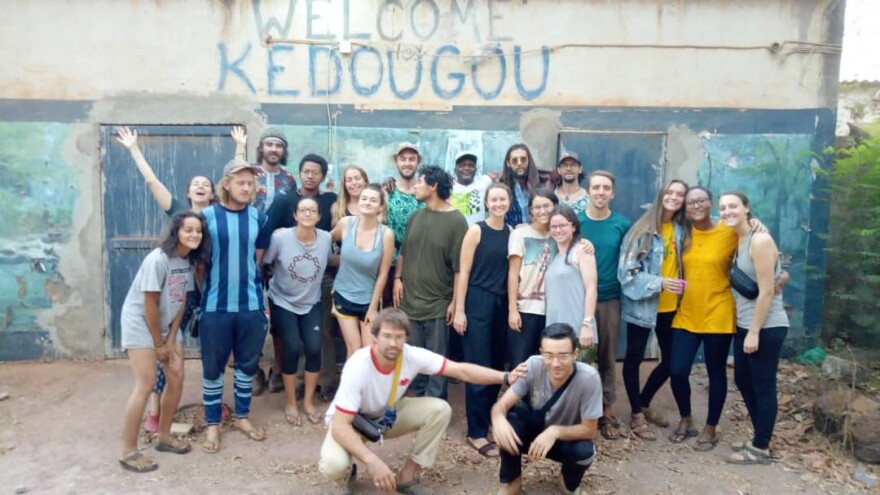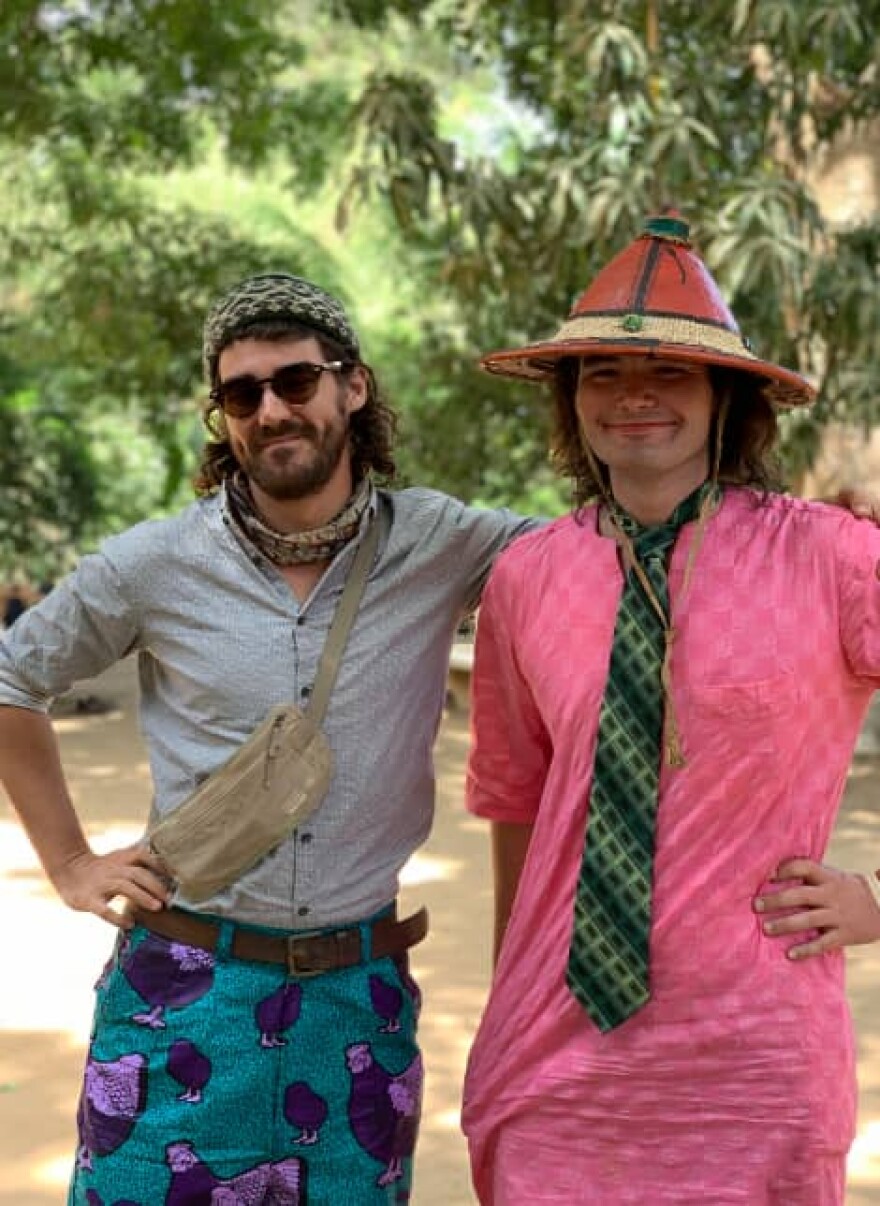Alex Ferenc was shocked when his phone lit up one night with a notification that he had 24 hours to leave Kedougou, Senegal, where he was serving in the Peace Corps.
Ferenc, who was 17 months into a two-year commitment, had to start saying his goodbyes early.
“It was unreal,” said Ferenc, a Wichita State University alumnus. “It felt like I was walking through a dream.
“The main thing on my mind at that time was, ‘You’ve got to try to do whatever you can do to take care of any loose ends because this may be the last moment you have in this community.’”
Ferenc, who was serving as an urban agricultural agent, started making a to-do list. How do you wrap up almost two years of work in less than 24 hours? As best you can, he says.
“I didn’t want to have any big regrets after coming back to America,” Ferenc said.
He finished his work, packed his belongings and gave a few parting gifts to his friends and host family members before boarding a bus to Thies, Senegal, where the Peace Corps has a volunteer training center. That’s where all 220 volunteers stationed in Senegal were sent after finding out that their operations had been suspended due to COVID-19.
“We were all just in shock,” Ferenc said. “There were people crying ... it was a lot of farewells, a lot of people taking photos, trying to capture those last memories.”

Ferenc is one of 7,334 Peace Corps volunteers who were sent home because of the coronavirus pandemic. This is the first time the agency has evacuated all volunteers from their posts.
Once he arrived in Thies, which is a 14-hour drive from Kedougou, Ferenc was told he’d have several days there before getting on a plane back to the United States. He didn’t.
“We went to bed thinking we had a week in the training center, and we woke up, and they were telling us things had changed,” Ferenc said.
The airspace in Senegal would be closed by the end of the day. He was on a bus to the airport by noon.
Volunteers usually spend two years serving in their assigned community. Ferenc, an Eagle Scout, said that he always saw the Peace Corps as the next step.
“I like to dabble in odd projects and thought [the Peace Corps] would be a good use of my skills,” he said. “And the selfish side of me wanted a good adventure.”
Ferenc was set to leave Kedougou in September. Now, he says, Senegal is essentially closed through then. There are currently 350 confirmed cases of COVID-19 in the West African country.

Before the pandemic sent him home, Ferenc was preparing to build a well in Kedougou. He was also planning to extend his service for a third year to continue working on data analysis in the agricultural sector. His fellow volunteers were working on similar projects to help their communities.
Now, they’re not sure whether that work will be finished.
“It’s really sad for those communities that were about to get those things,” Ferenc said.
Ferenc hopes to visit Senegal again someday, but he won’t get to return as a Peace Corps volunteer. For now, he’s at home in Andover with his parents.
Due to their volunteer status, Peace Corps evacuees can’t file for unemployment benefits. Ferenc said that the community of former Peace Corps volunteers — known as Returned Peace Corps Volunteers (RPCVs) — have been quick to offer assistance to others who need it.
“Immediately, people were creating Google Docs and spreadsheets of certain RPCVs and what they had available that they could offer,” Ferenc said. “There are active RPCVs in Wichita who reached out to me and offered assistance. It’s been absolutely amazing what the community’s been able to do.”
Ferenc says that, like many others, he isn’t sure what the future holds at the moment. But he’s hopeful that he’s going to be all right.
“For me, the next step is just putting the next foot forward and trying to figure out where to go from here.”

